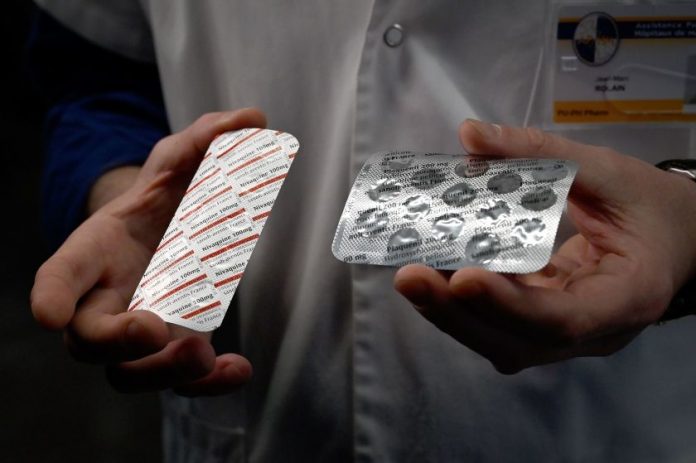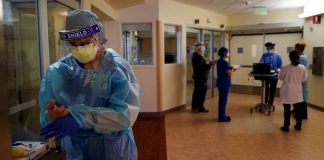Doctors and scientists are pushing back against President Donald Trump’s claims of a potential antidote for COVID-19, noting the two malaria drugs he’s touted are unproven against coronavirus and carry their own risks of side effects.
Trump on Monday again said there’s a “real chance” the long-used drugs are possible treatments for the respiratory disease caused by the coronavirus that as of Saturday had killed over 1,700 Americans.
Trump has cited a small study in France as evidence the federal government should aggressively pursue the malaria drugs combined with antibiotics. New York Gov. Andrew Cuomo said clinical studies will begin Tuesday.
But others aren’t as certain about the prospects of a quick fix from chloroquine, a drug developed in the 1930s, or a related drug, hydroxychloroquine.
World Health Organization Director-General Tedros Adhanom Ghebreyesus warned untested drugs can provide false hope and cause a shortage of proven treatments needed for other diseases. In addition to malaria, both drugs are used to treat rheumatoid arthritis and lupus.
Anthony Fauci, the director of the National Institute of Allergy and Infectious Diseases, noted information on malaria drugs combined with antibiotics remains “anecdotal” and needs to be evaluated in a clinical study.
Raymond Woosley is a medical doctor and pharmacologist who formed a Food and Drug Administration-funded nonprofit two decades ago that tracks drug safety. The two malaria drugs and the antibiotic azithromycin are among a group of about 60 drugs he said can cause subtle heart changes and increase a person’s risk of developing arrhythmia.
In an alert to doctors and in a blog post on his nonprofit’s website, Woosley urged doctors to be aware of the risk and use an electrocardiogram to screen patients for signs that might reveal a person’s risk of heart trouble.
The heart rhythm issues are detected through part of an electrocardiogram called a “QT interval,” said Woosley, chairman of AZCERT. Though it rarely occurs, people can black out or die because of these drug-induced abnormalities.
“We definitely don’t want to harm people by using drugs that have known side effects in ways that we know are dangerous,” he said.
Beyond potential heart trouble, some patients appear to be bypassing doctors and using malaria drugs on their own as a preemptive strike against COVID-19, which has no vaccine or proven therapy.
In Phoenix, a couple in their 60s ingested chloroquine phosphate, commonly used to clean fish tanks. The unidentified man died and the woman was in critical condition Monday night at a Banner Health hospital.
Daniel Brooks, Banner Poison and Drug Information Center medical director, said people are trying to find ways to prevent COVID-19 but “self-medicating is not the way to go.”
“The last thing that we want right now is to inundate our emergency departments with patients who believe they found a vague and risky solution that could potentially jeopardize their health,” he said.
Will Heise, a medical toxicologist with the Banner poison center and Banner-University Medical Center Phoenix, said the use of malaria drugs plus antibiotics will be a “tough line for people to walk.”
Heise does not know how the Phoenix couple obtained the chloroquine phosphate. But he said versions of the drug are used in aquariums and salt-water tanks. If the drug becomes more widely available, he fears children and even adults might ingest harmful doses.
“To put this in every American home would be incredibly dangerous,” Heise said.
The French study evaluated 26 people who received hydroxychloroquine as an experimental treatment for COVID-19. Six people received a combination of the malaria drug and the antibiotic azithromycin.
The study reported viral loads, as measured by a nasal swab, were lower in patients who received the malaria drug and cleared in six people who received both drugs. Of the six dropped from the study, three were transferred to hospital intensive care units, one died, one stopped taking the drug because of nausea and one decided to leave the hospital.
Woosley said it’s difficult to evaluate the results because of the study’s design, the number of patients who dropped out and the lack of information on side effects.
“It wasn’t scientifically rigorous,” he said. “It was anecdotal. It’s a hint that somebody needs to do the right kind of study.”













